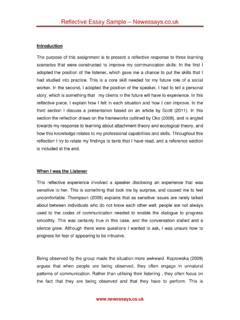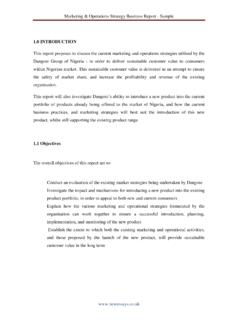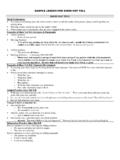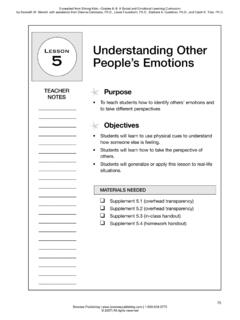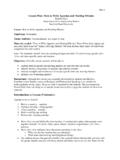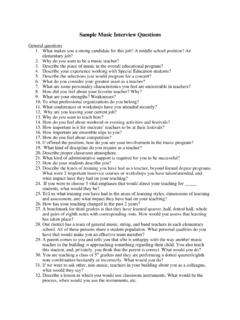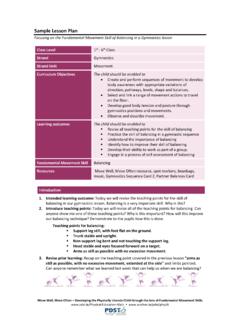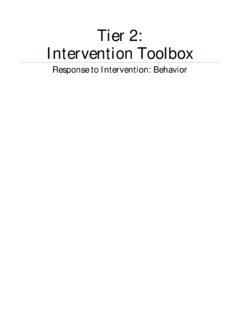Transcription of Reflective Essay Sample – Newessays.co
1 Reflective Essay Sample Introduction The purpose of this assignment is to present a Reflective response to three learning scenarios that were constructed to improve my communication skills. In the first I. adopted the position of the listener, which gave me a chance to put the skills that I. had studied into practice. This is a core skill needed for my future role of a social worker. In the second, I adopted the position of the speaker. I had to tell a personal story, which is something that my clients in the future will have to experience. In this Reflective piece, I explain how I felt in each situation and how I can improve. In the third section I discuss a presentation based on an article by Scott (2011). In this section the reflection draws on the frameworks outlined by Oko (2008), and is angled towards my response to learning about attachment theory and ecological theory, and how this knowledge relates to my professional capabilities and skills.
2 Throughout this reflection I try to relate my findings to texts that I have read, and a reference section is included at the end. When I was the Listener This Reflective experience involved a speaker disclosing an experience that was sensitive to her. This is something that took me by surprise, and caused me to feel uncomfortable. Thompson (2009) explains that as sensitive issues are rarely talked about between individuals who do not know each other well, people are not always used to the codes of communication needed to enable the dialogue to progress smoothly. This was certainly true in this case, and the conversation stalled and a silence grew. Although there were questions I wanted to ask, I was unsure how to progress for fear of appearing to be intrusive. Being observed by the group made the situation more awkward. Koprowska (2009). argues that when people are being observed, they often engage in unnatural patterns of communication.
3 Rather than utilising their listening , they often focus on the fact that they are being observed and that they have to perform. This is Reflective Essay Sample something that is difficult to overcome, because there are only limited opportunities to practice this kind of observational experience (Koprowska, 2009). In retrospect, this is where active listening would have been useful. Active listening is where various skills are used to show the speaker that you are engaged as a listener, and using techniques such as paraphrasing and sitting forward in the chair can encourage the speaker to keep talking whilst ensuring that the listener is entirely focused upon what is being said (Thompson, 2011). This would have helped me to forget that the conversation was being observed, and would have helped me to make the speaker more comfortable. One of the problems that I encountered was that my body language and facial expression betrayed the shock that I was feeling by the speaker's story.
4 This can be distracting or off-putting for a speaker (Dunhill, Elliott and Shaw, 2009). I thought that my body language was positive, warm, and welcoming, and was unaware that at times my discomfort with the situation was causing me to shift slightly in my seat. Body language is something that is excessively difficult to control without lots of practice. The combination of my lack of experience with the situation and my lack of practice at modifying my body language therefore became factors in the conversation. The group felt that this manifested itself in the form of me appearing to be tense, although the speaker insisted that she felt comfortable talking to me. As Dunhill et al (2009) explain, different people have different levels of comfort with the nature of the conversational experience, and it is possible that the speaker is someone who has higher levels of conversational confidence than normal.
5 When I was the Speaker Speaking is something that I sometimes feel uncomfortable doing, particularly when I. am speaking about something personal. Therefore, I entered into the role of speaker with some trepidation. Disclosing something personal is often a challenge for people, according to Howe (2008). The normal discourse in society is to keep discussion of bad experiences between close friends and family, and many people never talk about their bad experiences to anyone. According to Scott (2011), problems Reflective Essay Sample speaking are even more apparent if a child has suffered negative experiences during their early development. Their early social development is crucial for ensuring that they are able to communicate efficiently and effectively later in life, and abuse and neglect can mean that crucial developmental milestones are missed. This also has the negative consequence of enabling children to develop trust issues, which is one of the reasons that personal conversations need to be handled with extreme care by anyone who is engaging in one (Dunhill et al, 2009).
6 In this instance, I was surprised that the listener seemed to find my story trivial. Admittedly, my personal story was no dramatic revelation; however, this should not make a difference to someone who is in a listening position (Howe, 2008). I was surprised by how easy it was for me to read my friend's body language and facial expression, even though it was clear that she was attempting to remain neutral. This is a valuable lesson, because I found that controlling my body language and facial expression is something that I need to work on in particular for my personal listening skills. Observing listeners closely is therefore something that I can begin to integrate into my daily Reflective practice. A final lesson that came from the experience of being the speaker was the effect of different listening techniques on how I felt. In particular, the listener gave some examples of her own experiences, which she was doing in order to show that understood and could empathise with me.
7 However, the effect of this was to make me feel as though she were not listening properly to me, and my instinctive response was to subtly end the conversation. According to Thompson (2011) it is vital that professionals remain mindful of conversational boundaries, and that they never over- familiarise with a client. I had always understood that this was a professional technique that was carried out to prevent issues of confidentiality. However, I learned in this instance that it is also very distracting for a client as it steers the conversation away from the service user and onto the professional. Reflective Essay Sample Observing a Presentation I had not taken time to read the journal prior to the presentation, and this was a particular drawback for me because I have only a very limited knowledge of looked after children. As a future social worker it is my responsibility to ensure that I have detailed knowledge of the implications of multiple factors on a child's development (Beckett and Maynard, 2013).
8 Attachment theory explains how children form a bond with their primary caregiver, and the long-term influence that this has on their emotional development. Understanding this theory is one of the most important weapons that a social worker has, according to theorists, because attachment theories can solve multiple problems and challenges (Scott, 2011). Another useful theory is ecological theory (Beckett, 2006). This aims to explain "the reprocity between persons and their environments", and explains how people adapt to their environments and surroundings. People constantly change and adapt to their environments based upon the interactions that they have with their families, cultures, and communities, and this will contribute to their behaviour (Beckett, 2006). During the presentation I did not know about this, and so I was nervous about how I. would be able to contribute to the discussion. However, I was able to engage with it due to the fact that the presentation was well delivered, and because I had a strong emotional response to the topic.
9 When people are genuinely interested in a topic or theory they will usually have a heightened level of attentiveness and engagement, according to Wodcock Ross (2011), and I certainly experienced this. It is deeply saddening to hear about the long-term negative consequences that breaking important attachments can have on a child's development as described by Scott (2011), and it is highly important for social workers to be acutely aware of this. This will help decisions to be made based on informed and rational choices rather than letting emotions dictate, which is part of the social work professional capabilities framework (PCF) and the College and the Health and Care Professions Council (HCPC) Standards of Practice for Social Workers (SoPS) in England. Reflective Essay Sample My response to the article by Scott (2011) was to do some personal research. I. found that in 2012 there were more than 91,000 looked after children in the UK, according to the National Society for the Prevention of Cruelty to Children (NSPCC).
10 (2013). Whilst this represents a very small percentage of the million children in the UK, it nevertheless represents a frighteningly large figure when it is considered that the emotional and social development of each of these is being interrupted. The decision to take a child into care should never be taken lightly, and this shows why the social work values and the PCF are highly important. This experience also showed me how facts and figures have more meaning when people understand the theories behind them (Oko, 2008). The number 91,000 would not have meant particularly much to me if I had not read the article by Scott and subsequently done research into attachment theory and ecological theory. Therefore, this was a valuable learning experience. Reflective Essay Sample REFERENCES. Beckett, C (2006) Essential Theory for Social Work Practice, London: Sage. Beckett, C. and Maynard, A. (2013) Values and ethics in social work 2nd edn.



